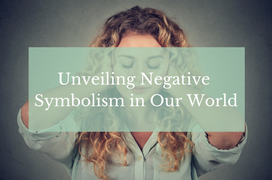Unmasking the Shadows: Exploring Negative Symbols Hidden in Plain Sight
Posted by Kellie on Jan 25th 2024
Exploring Negative Symbols Hidden in Plain Sight
In a world adorned with a multitude of symbols, it's essential to be vigilant about the potential meanings they carry. While symbols often serve as powerful forms of communication, some have been historically associated with ideologies that stand in contrast to Christian beliefs. The dangers of satanic symbols in plain sight lie not in the symbols themselves, but in the potential misinterpretations and misconceptions they may generate.
- Inverted Cross: In some contexts, the upside-down cross is associated with anti-Christian sentiment or satanism.
- Pentagram: While not inherently evil, the pentagram has been associated with occult practices.
- Sigil of Baphomet: Often associated with modern occultism and satanism, the Sigil of Baphomet features an inverted pentagram with a goat's head.
- ###: Known as the "Number of the Beast" in Christian tradition and is often associated with evil or satanic symbolism. The repetitive Number 6. The repetitive Number 4 is often linked to New Age.
- Leviathan Cross: Also known as the Satanic Cross or Lucifer's Cross, this symbol features a double cross with an infinity symbol.
- The All-Seeing Eye: While not inherently satanic, some link the All-Seeing Eye to secret societies and anti-Christian ideologies.
Symbols like these are often used in product marketing: Energy Drinks, Coffee, Jewelry and Apparel. Misunderstanding symbols can foster a climate of suspicion and division. Individuals may inadvertently be labeled as proponents of anti-Christian ideologies when, in fact, their intentions may be entirely unrelated. They may truly not be aware of the meaning or the history behind it.
Engaging in conversations aimed at education and understanding, rather than division, becomes crucial when discussing matters of faith. Many individuals wear symbols like the evil eye without a full grasp of their historical context and significance until someone takes the time to explain. By fostering open dialogues that seek to educate rather than judge, we create opportunities for a deeper conversation about what individuals may unintentionally be opening themselves up to.
Keeping in mind the phrase "You don't know until you do" can be a valuable reminder. This is another illustration of why we are encouraged to go into the world and share His story with everyone we meet.



